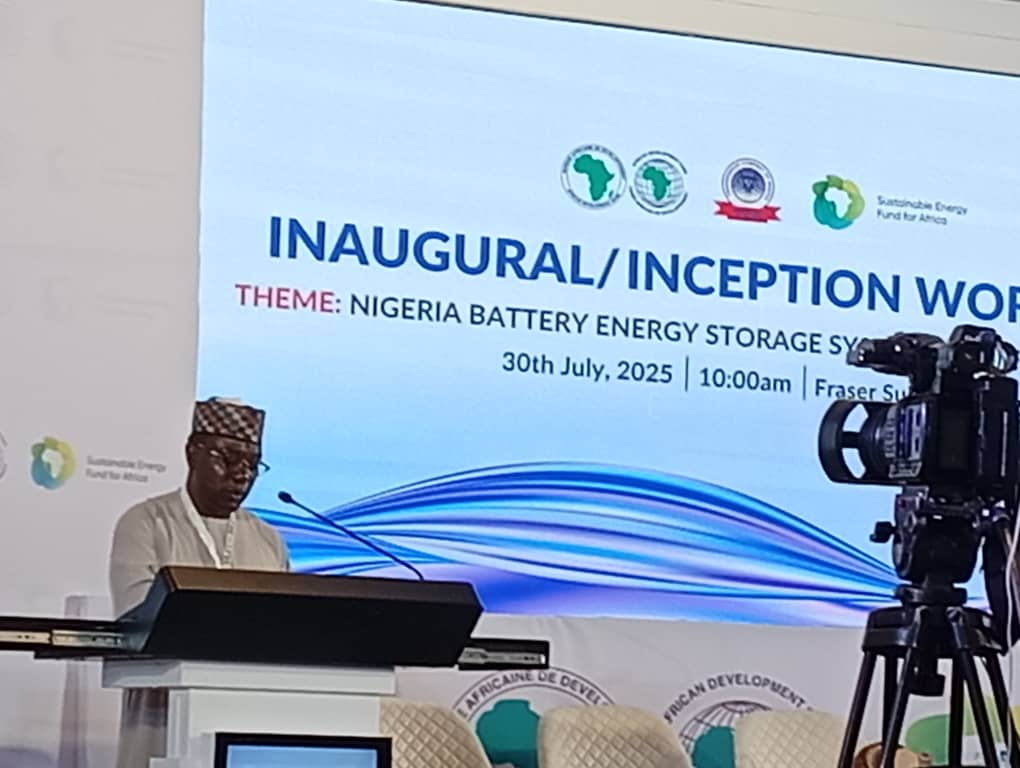The African Development Bank (AfDB) has committed $1.2 million to fund a feasibility study for Nigeria’s Battery Energy Storage System (BESS), a critical step toward stabilising the national grid and accelerating the country’s shift to renewable energy.
According to the 9am News report, the grant provided through AfDB’s Energy Transition Catalyst Programme was announced during the inaugural workshop for the BESS feasibility study held in Abuja on Wednesday. The event was jointly organised by the Transmission Company of Nigeria (TCN) and the AfDB.
Dr. Abdul Kamra, Director-General of AfDB’s Nigeria Country Department, stated that the study will assess the viability of deploying battery storage solutions to enhance power system stability, renewable energy integration, and electricity access for underserved Nigerians.
“This initiative will evaluate options for grid integration, identify business and regulatory models to attract private sector participation, and develop the technical capacity for long-term sustainability,” Kamra explained.
Boosting Grid Resilience and Energy Transition
Kamra further highlighted that battery energy storage systems are now indispensable for modern power infrastructure, providing vital services such as frequency stabilisation, reserve capacity, and peak load management. However, he warned that technology alone will not drive success, stressing the need for supportive regulations and investment-friendly policies.
The grant also forms part of AfDB’s $1 billion Economic Governance and Energy Transition Support Programme, underlining the Bank’s commitment to energy transition and governance in Nigeria. The initiative also aligns with Nigeria’s Energy Transition Plan, Sustainable Energy for All (SE4ALL) Action Agenda, and Renewable Energy Master Plan.
Government and Stakeholder Backing
Nigeria’s Minister of Power, Adebayo Adelabu represented at the workshop by Ben Ayangeor described the study as a strategic move to future-proof the country’s energy system. He noted that battery storage would allow surplus power to be stored during low demand periods and released when demand peaks, ultimately improving grid stability and reducing fossil fuel dependence.
Sule Abdulaziz, Managing Director of the TCN represented by Olugbenga Ajiboye also welcomed the study. He pointed out that battery storage could address voltage instability, frequency fluctuations, and peak load challenges longstanding issues undermining the country’s electricity delivery.
The BESS feasibility study is part of the AfDB’s Mission 300 programme, which aims to connect 300 million Africans to reliable electricity by the year 2030.
As energy demands grow and renewables take a central role, this initiative marks a major step in strengthening Nigeria’s power infrastructure and ensuring its energy security for future generations.
Stay tuned to 9am News Nigeria for more Breaking News, Business News, Sports updates And Entertainment Gists.
















